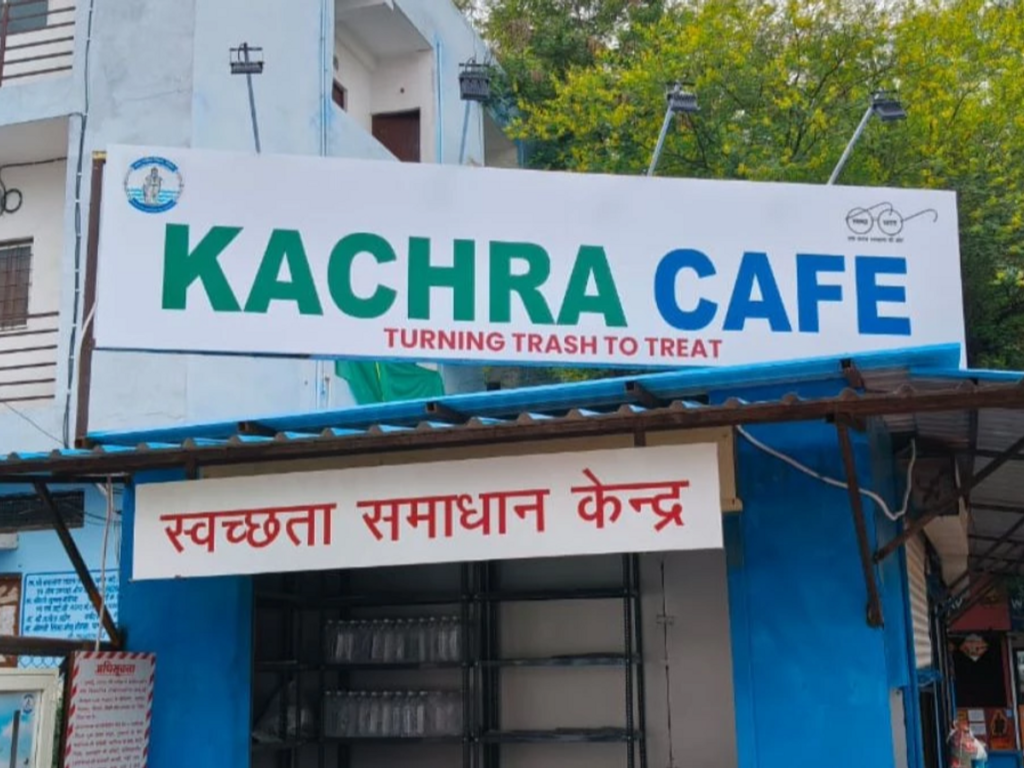The streets of Bhopal may soon look cleaner, thanks to a municipal experiment that blends environmental reform with social welfare. The city has announced the launch of Kachra Cafés, where residents can exchange plastic and other recyclable waste for meals, groceries, or even cash.
A New Currency: Trash
The pilot program will begin with two cafés—one at 10 Number Market and another near Boat Club—opening within the next fortnight. Under the scheme, residents who bring segregated recyclables such as plastic bottles, wrappers, or e-waste will receive tangible rewards. Plastic, for instance, will fetch Rs 20 per kilogram, higher than its usual market rate of Rs 15. Those unable to gather large amounts will still be compensated, often in the form of simple meals like chhole-chawal or basic provisions.
Linking Sustainability With Social Empowerment
The initiative is not just about cleaner streets. The cafés will be run by women’s self-help groups, a deliberate step toward creating employment opportunities and local leadership. Officials say the project is designed to ease the city’s growing waste burden while giving marginalized residents access to food security and small income streams.
Inspired by Earlier Models
The concept draws on similar efforts in other cities, most notably Ambikapur in neighboring Chhattisgarh, where a “garbage café” won national attention for allowing ragpickers to dine with dignity in exchange for plastic. By adapting that model, Bhopal hopes to address two problems at once: waste segregation at the source and social upliftment for those most in need.
Toward Cleaner, Fairer Cities
Officials argue that tackling banned and contaminated plastics remains one of Bhopal’s most pressing challenges. By offering everyday essentials in exchange for recyclables, they hope to nudge citizens toward responsible disposal practices. If the pilot succeeds, the model could be scaled citywide and perhaps replicated in other urban centers grappling with waste and poverty.
Bhopal’s Kachra Cafés reimagine waste not as a nuisance, but as a resource—turning plastic into food, dignity, and a cleaner city.


